Blog

May 2, 2024
Driving on the road can be risky. Any trip you take has the potential to lead to legal, insurance, and injury issues, no matter how safely you drive. Similarly, regardless of how closely you follow traffic laws, if you ever find yourself involved in an accident with a reckless driver, you'll need sufficient evidence to prove that the other party was at fault. This dynamic highlights the importance of a dashcam for drivers—because a dashcam can be a crucial tool in providing evidence for legal and insurance claims, many lawyers recommend that drivers invest in a dashcam for added protection. What Even Is a Dashcam? A dashcam, short for dashboard camera, is a specialized on-board surveillance device designed to record sounds and images while you are driving. Mounted inside the vehicle, typically on the dashboard or windshield, these compact cameras begin recording once the car's engine is turned on. They serve as an impartial witness to everything happening on the road ahead (or behind, if equipped with rear-facing cameras), capturing footage that can be invaluable in the event of an auto accident , road rage incident, or traffic violation dispute. Their ability to provide concrete evidence makes them an essential tool for ensuring accountability on the roads. Are Dashcams Required in Massachusetts? In Massachusetts, there is no law that specifically requires drivers to install dashcams in their vehicles. However, Massachusetts law does permit the use of dashcams as long as they adhere to certain privacy guidelines. For instance, it's important to ensure that the dashcam setup does not obstruct the driver's view and that audio recordings comply with the state’s wiretapping laws, which generally require the consent of the person being recorded. Brief Overview of Dashcam Benefits Ultimately, the dashcam's primary function is to bear witness to your (vehicle's) every move. In a state like Massachusetts, where insurance laws can be as intricate as the Big Dig, these unassuming cameras pack more power than meets the eye. Here are the primary benefits I like to point out: Tape Doesn’t Lie: Dashcam footage serves as strong legal evidence, recording incidents in real-time. In a court case where details matter, a clear video can significantly influence the outcome. Insurance's Best Friend: In the muddled aftermath of a traffic collision, your dashcam could provide the proof that your insurance company needs to settle your claim quickly and accurately. Preventing Crashes Before They Happen: They not only document the who, what, and when of an accident but also serve as a deterrent. Knowing that all actions are potentially being recorded can make drivers think twice before being reckless. An Attorney's Perspective: The Road to Recovery With Dashcam Evidence When an accident occurs, the sequence of events leading up to, during, and immediately after the incident is often disputed by the parties involved. Dashcam footage offers a factual recount of the circumstances, making it an invaluable asset for attorneys and insurance adjusters. The video evidence it provides can confirm statements and demonstrate the dynamics of the crash—all helping to establish liability and the extent of damages incurred. But the use of dashcam footage in court goes beyond merely identifying the responsible party. It can also influence the valuation of a claim, particularly in settling disputes regarding the severity of the crash and the injuries sustained. In my experience, jurors and judges often find visual evidence more compelling than verbal testimony or static photographs. A video capturing the moment of impact and the conditions leading to it can vividly illustrate the plaintiff's experience, lending credibility to claims of physical harm and emotional distress. Consequently, dashcam evidence can play a crucial role in securing fair compensation for the injured party. Furthermore, dashcams can capture critical details often overlooked or forgotten, such as traffic signals, road conditions, weather circumstances, and the actions of other drivers. This level of detail can be a game-changer in personal injury cases and car insurance disputes—where the precise cause of the accident and contributing factors are all under scrutiny. Dashcams have the power to equip legal representatives with concrete evidence to support or refute claims, negotiate settlements, and present in court, thereby expediting the recovery process for injured individuals. Dashcam footage not only serves as an objective observer, but can also be a key player throughout any stage of personal injury litigation following an auto accident. Address Your Questions With a Lawyer While the benefits of having a dashcam are extensive, the most compelling advantage is the peace of mind it offers. In a state with traffic as unforgiving as Massachusetts, where a simple drive can throw a wrench in your day or change the course of your life, equipping a dashcam assures a level of control in the face of the unknown. The potential for a dashboard camera to transform from an accessory to an invaluable aid in a time of need is not a gamble; it's an insurance policy of sorts, ensuring that the road ahead is paved with clarity and your rights are upheld. I encourage every Massachusetts driver to consider the installation of a dashcam in their vehicle, not as a tool of skepticism or fear, but as a pragmatic enhancement to your safety and sovereignty on the open road. Reach out to me at the Law Office of James A. Maniatis today for an informed discussion on how to protect your rights in the event of a vehicular incident. My firm has locations in Shrewsbury, Southborough, and Webster, Massachusetts; and I serve clients throughout the Commonwealth of Massachusetts, including Westborough, Northborough, Grafton, Boylston, Millbury, Upton, Dudley, and Oxford.
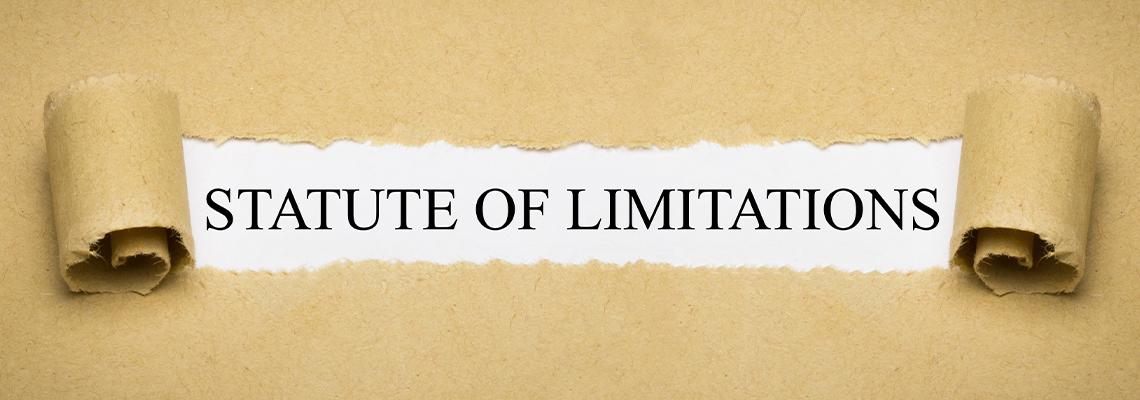
September 28, 2023
If you have suffered injuries due to the negligence of another, you have the right to make a claim for compensation. However, your right to pursue compensation won’t last forever. In every state, there is a limited amount of time to take legal action after suffering a personal injury , known as the “statute of limitations.” As an attorney at Law Office of James A. Maniatis , I can help educate you on your rights while also helping you adhere to the applicable deadlines and follow other procedural requirements to ensure that you receive the compensation you deserve. With three offices in Massachusetts (Shrewsbury, Webster, and Southborough), I serve clients throughout the Commonwealth, including Dudley, Oxford, Westborough, Grafton, Upton, Boylston, and Northborough. Statute of Limitations for Personal Injuries in Massachusetts In personal injury cases, the term “statute of limitations” refers to a legal deadline for an injured person to file a lawsuit. The deadline varies from one state to another and may also vary within the state depending on the type of the claim. In the Commonwealth of Massachusetts, all personal injury cases are subject to a three-year statute of limitations. The clock starts ticking on the date of the injury. However, in medical malpractice cases, a lawsuit must be brought within three years from the date the injured party discovered or should have reasonably discovered the injury and its link to the alleged malpractice. What Happens if You Miss the Filing Deadline? Waiting too long to file a personal injury lawsuit and missing the filing deadline can result in the loss of your right to seek compensation. If the statute of limitations expires but you attempt to file a lawsuit anyway, the court will most likely dismiss your case unless you qualify for any of the exceptions I will discuss below. While three years might seem like a long time, it is best to act on your claim sooner rather than later. You may not realize how much there is to do before your lawsuit is ready to be filed. Waiting until the deadline is approaching is a terrible idea, especially when your health and financial security are at stake. At Law Office of James A. Maniatis, I am ready to dedicate my time, energy, and attention to you and start working on your case immediately. Exceptions to the Statute of Limitations in Massachusetts The laws of the Commonwealth of Massachusetts recognize three exceptions to the statute of limitations in personal injury cases: Minors. When the injured victim is under the age of 18, the statute of limitations will be tolled until after that individual reaches the age of majority. In other words, the three-year dealing does not begin to run until after the victim’s 18th birthday. This exception does not apply to medical malpractice cases. The law requires the minor’s parents to bring a lawsuit within three years of the date they knew or should have known that the alleged malpractice had occurred. Statute of repose. This statute terminates the injured person’s right to take legal action after a specific number of years have passed. The statute of repose cannot be tolled for any reason. In the Commonwealth of Massachusetts, medical malpractice cases have a seven-year statute of repose in addition to the standard three-year statute of limitations. Fraudulent concealment. When the defendant fraudulently conceals their negligence or takes steps to prevent the plaintiff from filing a lawsuit, the statute of limitations can be tolled until after the date the plaintiff discovers fraudulent concealment. However, this exception is rarely used in personal injury cases. As a personal injury attorney with more than 30 years of experience at Law Office of James A. Maniatis, I can evaluate the specifics of your case and help you understand what factors could affect the timeline of your case. Learn What Compensation You Are Entitled To If you or someone you love has been injured due to someone else’s negligence in the Commonwealth of Massachusetts and would like to learn more about your legal rights, reach out to my office. At Law Office of James A. Maniatis, I strive to provide a thoughtful and personalized approach to every case I handle. I will take care of the legal matters so you can focus on recovery. Contact me now for a consultation.
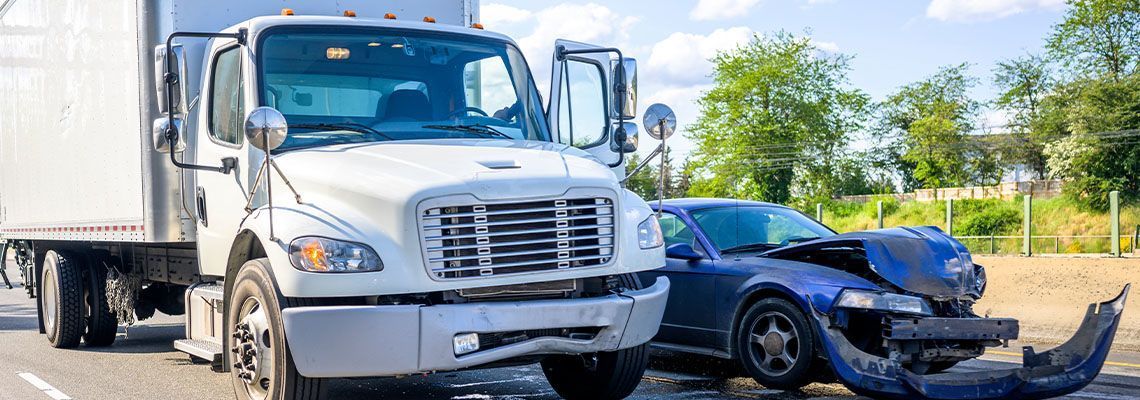
August 25, 2023
Semi-truck accidents are some of the most devastating types of collisions on our roads. These accidents often result in catastrophic injuries and deaths due to the disparity in vehicle size between the truck and other passenger vehicles. The aftermath of any truck accident can be traumatizing for the victims and may create a number of legal complications. One of those complications is determining who can be liable for the damages caused. As an experienced truck accident attorney at the Law Office of James A. Maniatis , I can assist you in determining who is responsible for causing your semi-truck accident. I am committed to working tirelessly on behalf of accident victims and their families to help them get justice and obtain the full amount of compensation they deserve. With three locations in Massachusetts—Shrewsbury, Southborough, and Webster—I serve clients throughout the Commonwealth of Massachusetts, including Millbury, Westborough, Oxford, Northborough, and other areas. Assessing Liability in a Truck Accident Case Liability in accidents involving semi-trucks and other large trucks depends on the circumstances surrounding the crash. Any of the following parties may be found liable: The truck driver. If the accident was the result of the truck driver’s negligence (e.g., speeding), the trucker may be solely responsible for the crash and the resulting damages. The trucking company. Depending on what caused the accident, the trucking company may be partially or fully at fault for the accident. For example, if the company forced a truck driver to violate hours-of-service rules to meet deadlines, it would most likely share the blame for the accident. The owner of the truck. Not all commercial truck drivers own the vehicles they drive. For this reason, the truck's owner may be found liable if they were responsible for maintaining the truck and the accident occured because of inadequate maintenance of the vehicle. The manufacturer of the truck or its parts. If a truck accident is caused by a manufacturing or design defect in the vehicle or its parts, the manufacturer(s) could be held liable for the resulting crash. The shipper/loader of the cargo. Collisions involving trucks can be caused by cargo shifts or loads falling off the truck. The party responsible for shipping and loading cargo can be held liable for the accident in such collisions. A skilled and detail-oriented attorney can help investigate how the accident occurred to identify all potentially liable parties. Determining what caused the accident is always the first step on the road to financial recovery. The second step is assessing liability based on how the accident occurred. Proving Negligence After a Semi-Truck Accident If you or someone you love has been involved in a semi-truck accident, you need to prove that another party (e.g., the truck driver and/or trucking company) was negligent. Recovering damages hinges on your ability to prove negligence in your case. The legal term “negligence” refers to the failure to exercise reasonable care. In truck accident cases, negligence can be proven by establishing the following elements by a preponderance of the evidence: The defendant (e.g., the truck driver) owed you a duty of care (truck drivers always owe a duty of care to those around them on the road); The defendant breached the duty of care (e.g., the truck driver was driving above the posted speed limit); The breach caused the accident; and You suffered calculable damages in that accident (e.g., medical expenses, loss of income, etc.). Each of these four elements must be proven to prevail in your claim against the defendant. If you can prove some but not all four of these elements, you will not be able to obtain compensation. What Happens if You Share Liability? Massachusetts is one of the many states that adopted a modified comparative negligence law. Under this law, if you share liability for a truck accident, you will not be able to recover full compensation for your injuries and losses. Instead, your recoverable damages will be reduced in proportion to your degree of fault. For example, if the truck driver was found 75% at fault for causing a semi-truck accident and you were 25% at fault, your total compensation would be reduced by 25%. However, if your degree of fault is determined to be 51% or more, you will not be entitled to any compensation whatsoever. Strong & Reliable Legal Guidance If you have suffered injuries or your loved one was killed in a semi-truck accident, contact the Law Office of James A. Maniatis today to get reliable legal guidance. I have the experience and resources to effectively investigate your accident to help you determine liable parties and fight for the compensation you are entitled to. Contact my office to receive a free initial consultation.
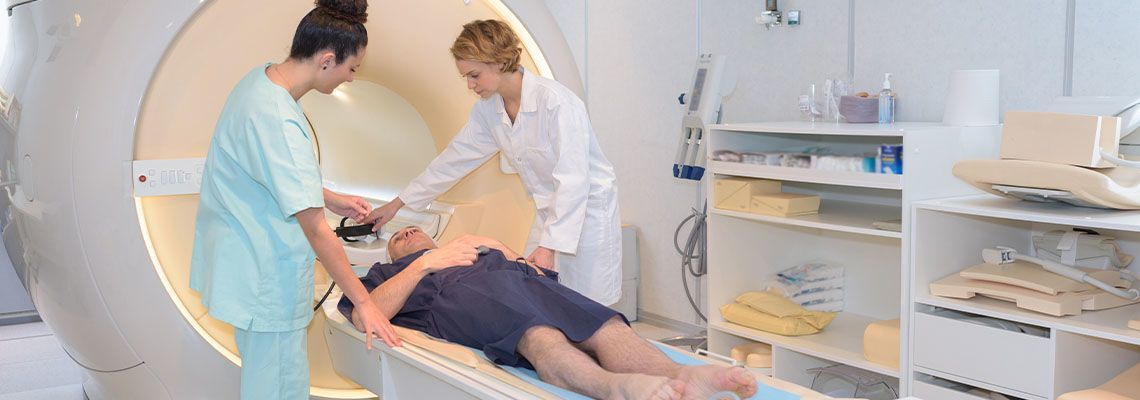
July 18, 2023
When you’re injured in an accident and rushed to the emergency room to be examined, one of the first procedures is to take an X-ray to determine if there are any fractures. X-rays, though quick, are not necessarily the most revealing method when it comes to injuries beyond major fractures. An MRI, on the other hand, can spot soft tissue and musculoskeletal conditions that an X-ray cannot. The danger is that relying solely on an X-ray evaluation can lead to a misdiagnosis, and an injury that needs treating might go without the medical steps needed to produce the proper recovery from your accident. Researchers at the Johns Hopkins University School of Medicine estimate that diagnostic errors might be responsible for 160,000 permanent injuries or deaths per year. If you or a loved one has been injured in an accident in or around Shrewsbury, Southborough, or Webster, Massachusetts, reach out to me at the Law Office of James A. Maniatis . I am a personal injury attorney with more than three decades’ experience. I will advise you of your best course of action in seeking recovery for your injuries and also in being sure you’ve received the most thorough diagnosis. I also proudly serve clients throughout the Commonwealth of Massachusetts, including Westborough, Northborough, Grafton, Boylston, Millbury, Upton, Dudley, and Oxford. The Dangers of Not Getting a Complete Diagnosis People involved in accidents often try to brush off what happened because they don’t immediately feel any pain or detect an obvious injury. An adrenaline rush will often mask anything that happened, and indeed it can be hours, days, and sometimes even weeks later before the problem becomes obvious. That’s why it’s important to get a medical checkup whenever you’re involved in any type of accident, no matter how you feel initially. Another reason is that, for your insurance claim or a personal injury lawsuit, you’re going to need to have medical evidence to support your claim. An X-ray, because it’s quick and easy compared to an MRI, is usually the first choice for scanning the area of your injury, but it has its limitations, and less obvious injuries may go undetected. You may want to question those attending to you to see if you may need an MRI as well. How Do X-Rays Work and What Are Their Limitations? An X-ray is also known as a radiograph since it literally sends radiation through your body. Bones and teeth, those areas of your body with high levels of calcium, appear white on the X-ray image. Soft tissue, which allows the radiation to pass through, appears black or gray. X-rays are good for detecting fractures, dislocations, misalignments, and narrowed joint spaces. X-rays won’t reveal subtle bone injuries, soft tissue tears, or inflammations. X-rays are generally ordered as the first diagnostic tool to discover if there are any fractures before further tests may be necessary. What Is an MRI? An MRI, which stands for magnetic resonance imaging, uses a powerful magnet to pass radio waves through the body. There is no radiation involved. Protons in the body, however, react to the radio waves’ energy and create highly-detailed pictures of the body’s structures, including soft tissues, nerves, and blood vessels. An MRI is not as quick as an X-ray and can take ten minutes or more to perform even on the most powerful MRI scanners, but the detail it reveals is way more complete than an X-ray. Among injuries and problems an MRI can detect are cartilage loss, joint inflammation, nerve compression, spinal injuries, and torn or detached ligaments, tendons, muscles, and cartilage. Personal Injury Lawsuits Depending on the accident that causes you injury, you may want to file a claim with the responsible party’s insurance company, or you may want to proceed straight to civil litigation with a personal injury lawsuit. An insurance company claim must be filed quickly, but for a personal injury lawsuit, you face a three-year statute of limitations to file. The clock starts clicking from the date of the accident that caused your injury. Understand Your Rights and Options If you or a loved one was involved in an accident due to someone else’s negligence – their actions or inactions – contact me immediately at the Law Office of James A. Maniatis. I will listen to your story and advise you of the best option to recover compensation for your medical expenses and other losses. I will negotiate with the insurance company or file a personal injury lawsuit to get you the just compensation you deserve. Reach out if you’re anywhere in or around Shrewsbury, Southborough, or Webster.

May 30, 2023
Life is unpredictable, and accidents can happen to anyone. In fact, according to the NHTSA, there are more than 14,000 car accidents, on average, each and every day in the United States. But what happens after an accident? Following an accident in Massachusetts, it's normal to feel overwhelmed and unsure about the next steps to take. That’s where I come in. Here at Law Office of James A. Maniatis, I’m prepared to guide you through the aftermath of a car accident or any other kind of personal injury. If you live in Shrewsbury, Southborough, Webster, or anywhere else in Massachusetts—including Westborough, Northborough, Grafton, or Boylston—set up a consultation with me. I will listen to your story and strategize a path forward. Personal Injury Claims Process in Massachusetts It’s important to understand that Massachusetts is a "no-fault state," which means that individuals are required to carry Personal Injury Protection (PIP) with their auto insurance. PIP covers medical expenses and other related expenses, regardless of who was at fault. It is only when the injuries resulting from the accident are severe that you can pursue a case outside PIP limits—or when an accident is caused by significant negligence. Such significant injuries might include broken bones, severe burns, disfigurement, and even death. The claims process in Massachusetts involves several steps: The first step is to inform the insurance company of the accident. A claim adjuster will be assigned to the case to oversee the investigation of the accident and analyze the evidence collected. During this process, it's important to be honest and thorough with the insurance adjuster and to provide relevant documents, such as medical bills resulting from the accident and police reports. However, only provide the necessary details and nothing more. The next step is to negotiate with the insurance company to obtain compensation. Most insurance companies aim to offer a lowball settlement, which is why it's so important to work with an experienced personal injury attorney. Once an agreement is reached, your car accident attorney will draft the settlement agreement, and you will sign it before receiving the payment. However, if the insurance company fails to settle, the next step may be litigation, where you may end up in court. Car Repair One of the first things you might expect following a car accident is the process of getting your vehicle repaired. Your insurance company will work with you to determine the best course of action for your car. The investigation to determine fault usually takes place fairly quickly after an accident. This process can either be very straightforward or very complicated, depending on the facts surrounding the accident. Your insurance company will guide you through the process by determining if the other driver was at fault. Once your vehicle has been evaluated by a mechanic or a body shop, your insurance adjuster will assess the damages. The adjuster may need to take the car apart to estimate any damages that may be concealed. In most cases, payment is made directly to the repair shop. Some shops work directly with insurance companies, while others require you to pay and then submit your claim for reimbursement. Medical Treatment One of the first things you should do immediately after an accident is to seek medical attention. Even if you feel like you weren't injured, some injuries don't present themselves until days or even weeks after the collision. Seeking medical attention will ensure that any underlying injuries are diagnosed and treated before they have a chance to worsen. Even if the injuries are minor, it is still important to seek medical attention. You will need to have official documentation of the injuries for any potential insurance claims or lawsuits. Additionally, when you file an insurance claim, you will need official documentation of your injuries to support your case. This includes medical records, bills, and any other expenses related to the accident. It is important to keep track of all documentation associated with your accident, as it will be useful during the claims process. Recovering Expenses Recovering expenses following an accident can be challenging. A skilled attorney can negotiate with the insurance company on your behalf to help you recover fair compensation. However, in the case where the insurance company fails to offer the amount you expect, it's important to consider filing a lawsuit. Your lawyer can represent you and handle all the necessary legal processes while pursuing the compensation you truly deserve. For individuals living in a no-fault state like Massachusetts, though, remember that the injured party can only sue the at-fault driver under specific circumstances. These conditions usually involve a situation in which there has been a severe injury or in which medical costs exceed specific thresholds. Always contact an attorney for help. Compassionate & Skilled Legal Guidance At Law Office of James A. Maniatis, I understand the emotional and financial strain that comes with an injury. I’m dedicated to providing compassionate and skilled legal guidance to anyone who has suffered a personal injury in Southborough, Webster, and Shrewsbury, Massachusetts, along with clients throughout the entire Commonwealth of Massachusetts. Contact me today for a free consultation.
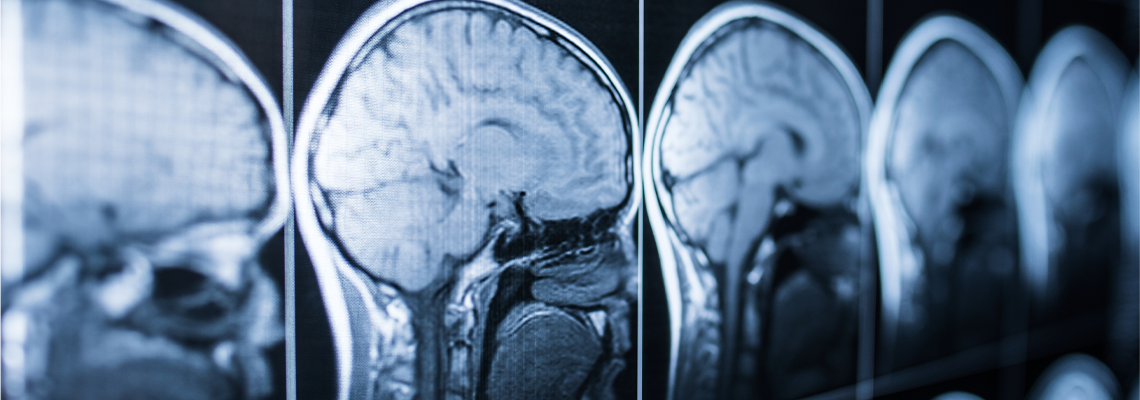
May 15, 2023
We've all had our fair share of tumbles and stumbles. A loose tile on the floor, an ice patch on the pavement, or the occasional banana peel can send us to the ground in seconds. In some cases, it's just a matter of getting up and walking away unscathed. However, slip-and-fall accidents can often lead to serious injuries, including traumatic brain injuries. About 1 million visits to the ER each year are attributed to slip and falls. In this post, we'll walk you through exactly what constitutes a slip and fall injury and resulting traumatic brain injury—and what to do if this happens to you. Common Causes of a Slip and Fall There are a few variables that increase the likelihood of these sorts of accidents. One is the weather. Ice and rain can both make surfaces more treacherous. Not only that, but outdoor surfaces like concrete, gravel, or brick can be challenging to navigate, and indoor floors made of marble or polished stone can be prone to slipperiness when wet. Negligence is often a significant factor in slip-and-fall accidents. Property owners are responsible for keeping their premises safe for the general public and visitors. A failure to keep the property safe for visitors can lead to hazardous conditions, inadequate lighting, and damaged or wet surfaces. Poor lighting conditions, especially in dark or outdoor areas, can also leave people at greater risk for slips and falls. Poor lighting around staircases and entranceways can make it hard to see steps, which poses a high risk of a dangerous tumble down the stairs. What Is a Traumatic Brain Injury (TBI)? A traumatic brain injury (TBI) is a serious condition that can affect a person's daily life and cause long-term damage. Understanding the causes, symptoms, and treatment options for TBIs is essential for anyone who has suffered a head injury and wants to get the help they need. But what exactly is it? Let's break it down. How Does a TBI Happen? Traumatic brain injuries can occur when there is a sudden and severe impact to the head, which can lead to brain damage. Some common causes of TBIs include auto accidents, assaults, slips and falls, and sports injuries. Depending on the severity of the injury, a TBI can range from a mild concussion to a severe brain injury. TBIs can also occur even if there is no direct impact to the head, such as when the brain is shaken inside the skull during a car accident or a tackle in football. Symptoms If you have suffered a head injury, you may experience a variety of different symptoms, including dizziness, headaches, loss of consciousness, difficulty concentrating, and memory problems. These symptoms may not appear immediately following the injury and can take several weeks or even months to develop. Diagnosis and Treatment Diagnosing a TBI often involves a combination of physical examinations, neurological tests, and imaging studies, such as an MRI or CT scan. Treatment for TBIs can vary depending on the severity of the injury. Mild TBIs may require rest and monitoring for several weeks, while more severe injuries may require surgery or long-term rehabilitation. If you have been in an accident and have symptoms of a TBI, it's essential to seek medical attention right away. Proper diagnosis is critical for your long-term health and well-being, and it is also crucial for legal reasons. If you are seeking compensation after an accident, having a proper diagnosis of your injury can increase the chances of a successful case. Filing a Claim If you're thinking about filing a claim for a slip and fall with a personal injury attorney in Southborough, Webster, or Shrewsbury, Massachusetts, give the Law Office of James A. Maniatis a call. We'll walk you through the entire process, but here's a quick overview of what to expect. Premises Liability When filing a claim, it's essential to take premises liability laws into account. Property owners are held responsible for injuries that occur on their premises due to their negligence. Legal Challenges of a TBI In slip-and-fall accidents that result in TBIs, it's not always easy to establish liability. Unlike other types of injuries, TBIs cannot always be seen on diagnostic testing. That can make it more challenging to prove to insurance adjusters during negotiations. TBIs can also have long-term consequences that are difficult to document and prove. Beyond the initial impact of the accident, TBIs can lead to problems with memory, cognitive function, and emotional regulation. It can be challenging to prove how much of this damage was caused by the accident. That's why it's essential to hire legal experts that specialize in dealing with TBIs. Get the Experts on Your Side When it comes to dealing with a TBI, you need to have the right medical professionals on your team to document the extent of the injury. In addition to a neurologist, you should enlist the help of a neuropsychologist and cognitive rehabilitation expert. These experts can help establish the extent of the damage and the long-term effects on the individual's ability to work, care for themselves, and engage in activities they enjoy. Personal & Professional Legal Counsel If you've recently suffered a slip-and-fall accident and are concerned about its long-lasting implications, you may want to give a premises liability attorney a call. At the Law Office of James A. Maniatis, we're experienced in working with people who have suffered a traumatic brain injury as the result of a slip and fall. This is a catastrophic injury, and we know how stressful it can be. If you live in Southborough, Webster, or Shrewsbury, Massachusetts, or even throughout the Commonwealth of Massachusetts, we are the law firm you need to call. Contact us today and enjoy better peace of mind tomorrow.

April 17, 2023
Being involved in an accident can be a challenging experience. Under Massachusetts laws, accident victims may be eligible to pursue damages by filing a claim, regardless of the at-fault party. However, if you suffered a serious injury and want to file a third-party claim or lawsuit, you must prove fault and establish liability. Thankfully, third-party witnesses can give an unbiased viewpoint about the traffic crash and help establish who was really at fault for the incident. At the Law Office of James A. Maniatis, I'm poised and ready to guide and represent clients in their accident cases. As an experienced Massachusetts personal injury attorney, I can evaluate every aspect of your unique circumstances, enlighten you about the next steps to take, and review some questions to ask witnesses about the car accident. Also, I can help gather substantial evidence, including witness statements and testimonies, and help you pursue your deserved financial compensation. My firm proudly serves clients across Shrewsbury, Southborough, Webster, Westborough, Boylston, and Oxford, Massachusetts. Car Accident Claims in Massachusetts Massachusetts is a no-fault state for auto accidents. This means that an accident victim will turn to their own car insurance policy (PIP coverage) to cover medical expenses, lost income, and other out-of-pocket expenses incurred from the accident up to the coverage limits, regardless of who was at fault. Furthermore, your PIP coverage will pay for the following: up to $8,000 worth of medical expenses, excluding deductible 75% of your lost wages (income) up to $8,000 However, you may be able to step outside the state's no-fault system and file a claim or lawsuit against the at-fault party if you meet the following conditions: You incurred $2,000 or more in reasonable medical expenses, and/or You suffered any of these injuries from the accident: bone fracture, serious and permanent disfigurement, or substantial loss of hearing or sight. Statute of Limitations The statute of limitations for personal injury claims in Massachusetts, including car accident cases, is three years from the date of the accident or injury. This means that you must commence a civil action to recover damages within three years from the date the injury or accident occurred. Gathering Information After an Accident However, it is important that you gather information and collect evidence after the traffic accident. Collecting relevant information about the other driver, such as the driver's name, phone number, license number, and insurance information, can help avoid a hit-and-run situation. Also, you can easily reach out to the insurance provider or at-fault party to seek damages. Also, the accident scene pictures can serve as proof of evidence when filing your insurance claims and help you remember how the accident happened. In addition, you can record witness testimonies and statements and get their contact information. The police report and other available evidence will have the required information you need to pursue your injury claim. Questions to Ask Accident Witnesses An accident witness is a person who saw or heard the crash or was at the scene of the crash when it occurred. Here are some important questions to ask the accident witnesses: What time did you arrive at the accident scene? From your perspective, what were the weather and road conditions like? In your own words, can you describe in detail what you saw or heard? Did you have a clear view of the accident? How far away were you? Do you know of any other witnesses who may have more information? Was anyone with you when the accident occurred? Did you notice whether the other driver was distracted, texting, or speeding? What did the victims or people around them do after the accident? Who got out of their vehicle first? Will you be able to make a statement to the police? Do you know any of the accident victims or drivers? Can you write down your observation and sign the statement? Is there anything else you'd like to share about the accident? Also, ensure that you properly document all witness statements, testimonies, and findings. The information will be of great help if stories change later. Additional Information to Gather From Witnesses Here is some additional information to gather from witnesses after a motor vehicle accident: Accident-Related Expertise: A witness that is experienced and knowledgeable about auto accidents will be very valuable to your case. Using their accident-related expertise or professional training, they may be able to provide the required evidence and shed more light on various mechanical, legal, or medical issues regarding your case. Information About Accident Victims: If a witness knows someone involved in the accident, you may be able to evaluate their statements better to determine whether they are biased. Also, this will help prevent a situation whereby your witness has a conflict of interest. Nonetheless, their unbiased testimonies will still be valuable to your case. Contact Information: Also, you can collect the names and contact information of all potential witnesses in case you need to get in touch with them about the incident. In fact, they can help you reach out to other vital witnesses. Your car accident attorney can also reach out to the witnesses and gather valuable details for your case. Seek Experienced Legal Guidance Following Your Accident After an accident, witness statements and testimonies can provide valuable insights to the court, shed more light on the incident, and help identify the responsible party. At the Law Office of James A. Maniatis, I have devoted my career to offering outstanding legal services and protecting the best interests of accident victims and their loved ones. As your legal counsel, I can conduct a thorough investigation of the accident, help gather witness statements and testimonies, and document relevant information and evidence about the crash. In addition, I will help you prepare a solid case, hold the liable party accountable, and help you pursue fair financial compensation to cover your injuries, damages, or losses. Contact me at the Law Office of James A. Maniatis today to schedule a simple case evaluation with an experienced car accident lawyer. I can offer you the skilled representation and support you need in your accident case. My firm proudly serves clients across Shrewsbury, Southborough, Webster, Westborough, Boylston, Northborough, and Oxford, Massachusetts.

March 21, 2023
Most states require businesses to provide workers’ compensation insurance to their employees. This coverage is essential for protecting workers should they sustain an injury while on the job and ensuring they’re adequately compensated. However, the process of filing a claim and pursuing compensation can be daunting, which is why many people choose to hire a workplace injury attorney to help them navigate this system. A common concern of workers that comes up in these cases is how they’ll be compensated if their injury is so serious they’re unable to continue working. If you’ve recently been hurt on the job and would like help learning how to calculate lost earning capacity, call me at the Law Office of James A. Maniatis, serving those in Southborough, Webster, and Shrewsbury, Massachusetts, as well as surrounding areas. Loss of Income vs. Lost Earning Capacity Before delving into how the calculations for earning capacity are done, it’s important to know the difference between loss of earning capacity vs. lost income. The main distinction between the two terms is that lost income (also called lost wages) refers to past income, while lost earning capacity (also called loss of future earnings) refers to future missed income. In both cases, the loss of income must be directly caused by the injury sustained at work, which could include time off due to medical appointments, surgery, recovery time, mental anguish, or permanent injuries that prevent you from being able to perform your job functions. Because lost income is based on previously missed work days, it’s much easier to determine, whereas future lost wages are almost always harder to calculate and harder to prove. How Is Lost Earning Capacity Calculated? The actual calculations used for determining lost earning capacity are quite complicated, and it can be extremely helpful to work directly with a personal injury attorney to make sure you fully understand how it affects your specific case. Among other factors, your workers’ comp provider will review your current profession, work history, level of education, marketable skills, location, the market value of your job, current wage rates, expected retirement age, and promotion history. They will then use all this information along with the medical diagnosis of your injury (to the extent that it limits your job prospects) and compare it with your previous earnings. The difference between these numbers will be your future lost earnings. In some cases, it may be determined that you’re unable to work at all, while in others it may be that you can work reduced hours or transition to a different line of work that’s feasible given the restraints of your injury. How to Prove Lost Earning Capacity No matter what the circumstances of your specific case, proving lost earning capacity requires copious amounts of evidence and documentation. This could include past payslips, job descriptions, doctor’s diagnoses, testimony from medical experts both on your physical and mental health, or current medical research pertaining to your specific injury. You and your attorney will then use this information to present your case to the insurer outlining what you can reasonably expect from your future ability to earn income. Why You Should Work With an Attorney Insurers are always trying to save money, and one way they do this is by challenging claims of loss of earning capacity because they know how hard it is to prove. You should never attempt to argue over future lost earnings without the help of an experienced attorney. Your lawyer will help you gather and organize evidence, negotiate on your behalf with the insurer, and advocate for your basic rights. Protect Your Finances and Best Interests If you’ve just begun a workers’ compensation claim and are concerned about your future earning capacity, I can help. At the Law Office of James A. Maniatis, I can represent clients throughout the Commonwealth of Massachusetts, including Southborough, Webster, and Shrewsbury, Massachusetts, as well as Westborough, Northborough, Grafton, Boylston, Millbury, Upton, Dudley, and Oxford. Reach out today to schedule a consultation.
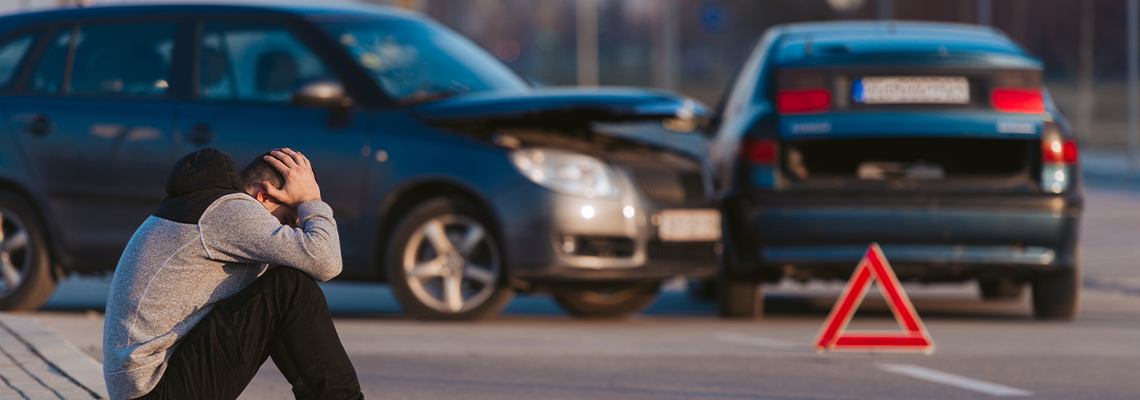
February 10, 2023
Massachusetts is one of about a dozen states that have no-fault auto insurance laws in place. What this means is that anyone involved in a vehicular accident must turn first to their own insurance to recover for medical expenses. Only if certain conditions are met – a dollar threshold and/or severe injuries – can the injured party sue the other driver if the accident were that person’s fault. But what if your son or daughter uses your car, or even their own while living with you and causes an accident that results in serious injuries? Since your child likely won’t have many assets to justify a lawsuit, can the victim or victims sue you as the parents? The answer can be yes, but it depends on the circumstances to a large degree. If you are being sued for injuries caused by your child’s driving in or around Shrewsbury, Massachusetts, contact me at the Law Office of James A. Maniatis. I have been representing clients in car accident/personal injury cases for more than 30 years, and I have the experience, knowledge, and resources to help you in your case. I have offices not only in Shrewsbury but also in Southborough and Webster. Massachusetts Auto Insurance Laws As noted, Massachusetts is a no-fault auto insurance state. The primary characteristic of no-fault insurance is something called Personal Injury Protection (PIP). PIP is the feature that covers your medical expenses and lost wages should you be injured in an auto accident, regardless of whose fault it is. In Massachusetts, the basic PIP coverage is $8,000. In addition to PIP, Massachusetts requires you to carry an auto policy that provides at least: $20,000 in liability coverage for bodily injury for one person when you cause the accident $40,000 in liability coverage for bodily injury to all persons in an accident you cause $5,000 in liability coverage for property damage you cause to others Uninsured motorist coverage for bodily injury you or your passengers sustain for $20,000 per person and $40,000 for everyone injured Your son or daughter who lives with you should be covered under your policy or even their own, but if an accident breaches these limits, you as the parent could be sued for personal injury or property damage under certain circumstances. Purchasing higher limits is always recommended. Going Beyond PIP: Filing a Personal Injury Lawsuit Massachusetts law allows someone injured in a vehicular accident to sue the at-fault driver if one of two conditions or both are met. The first condition is that your medical expenses exceed $2,000, and the second is that your injuries result in permanent and serious disfigurement, fractured bones, or substantial loss of hearing or sight. You can sue if either condition is met. Are Parents Liable for Accidents Caused by Their Teen? There are different legal premises for suing a driver’s parents. One is the principle of negligent entrustment. Say you let your child use your car when you know they present a risk to others; for instance, your teen has had their license suspended or has been charged with reckless driving and caused numerous accidents. This could be considered negligent entrustment. Another principle is vicarious liability. This applies if your child is pursuing a family “purpose.” For instance, you send your child out to buy groceries for dinner and cause an accident. You could be considered vicariously liable. Massachusetts Laws Governing Lawsuits Against Parents Massachusetts has on its books what is known as a social host law. This means that you as a parent can be held liable for the actions of your underaged child if you let them drink at a party and then get behind the wheel and cause an accident. Massachusetts also has a dram shop law, which holds bars and liquor store owners liable for auto accidents if they sell liquor to minors. Filing a Lawsuit Against a Parent Parents obviously have assets that a teenage driver would not, so in some accidents, the victims may seek to recover damages from the parents if they cannot cover their losses through the insurance claims process. They can try to show negligent entrustment or vicarious liability, but both legal principles can pose challenges in proving. Still, if you are being sued as a parent, facing a lawsuit of whatever merit can prove costly and emotionally draining. Speak With an Experienced Attorney If you are facing a personal injury lawsuit stemming from a car accident caused by your child, you need to seek the counsel and guidance of an experienced car accident/personal injury attorney immediately. I have more than three decades of experience in handling personal injury claims and lawsuits, and I can assess your situation and help you mount a strong defense. Contact me at the Law Office of James A. Maniatis at any of my three locations: Shrewsbury, Southborough, and Webster, Massachusetts. I proudly serve clients in neighboring communities, including Westborough, Northborough, Grafton, Boylston, Millbury, and more.
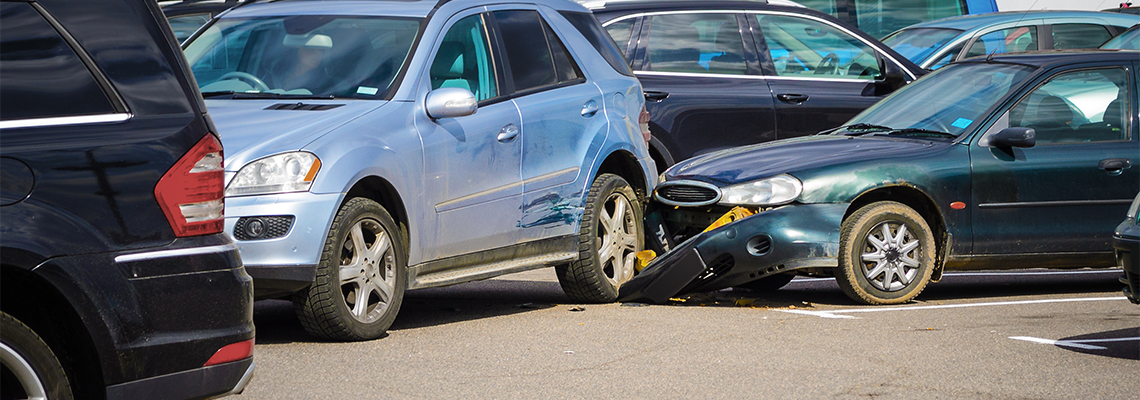
January 19, 2023
Parking lots are one of the most common areas to get into a car accident. And, even though cars are generally moving slower than they would be on the roads, these accidents can still cause damage and injury and need to be taken seriously. It can also be challenging to accurately determine who is at fault in a parking lot accident and who has the right of way in a parking lot, making insurance claims more complicated. If you have questions about this and want to speak with an experienced car accident attorney, call me at the Law Office of James A. Maniatis. I have locations in Shrewsbury, Massachusetts, Southborough, and Webster but represent clients throughout the Commonwealth. Common Accidents in Parking Lots Although the type of accidents that occur in parking lots can differ, there are few that are seen over and over. Perhaps the most common is when cars enter or leave a parking space. Parking lots are crowded, and cars can be very close to one another, making it difficult to check your blind spots. If a car is reversing out of a spot, and the other cars around them fail to stop, this could result in a collision. There may also be disputes about which car gets to park in a specific spot, and two cars may collide as they both attempt to take the space. Lastly, accidents can occur due to hazards or unsafe conditions in the parking lot itself. For example, if the lot is not well-lit or has potholes and uneven ground, this could also cause an accident. Right-of-Way Rules Right-of-way rules can often be hard to determine in a parking lot. However, there are a couple of rules that you should know and abide by to reduce the chance of an accident. The first is that pedestrians always have the right of way, regardless of where they are or whether they’re using a designated crossing area. Another right-of-way rule applies to large parking lots with a main perimeter lane that feeds into the interior feeder lanes. In general, cars in this perimeter lane will have the right of way, and the car in the interior lane must yield to them. The only exception to this rule would be if there was a stop sign in the perimeter lane to allow other cars to enter. Another somewhat unspoken rule states that cars that are backing out of parking spaces must yield to the cars already driving. Who’s At Fault? When you hire a personal injury attorney to help with your claim, their first priority will be to find out who was at fault for the accident occurring since this determines who’s responsible for paying damages. In most cases, one of the drivers will be responsible since they should be moving slowly and cautiously through the lot. In an ambiguous case, liability may need to be shared between two parties if you can’t obtain enough evidence that clearly points to one driver. In some cases, it may actually be the pedestrian who’s at fault for the accident, though this is rare since cars have the responsibility to yield. However, if you can prove that the pedestrian wasn’t paying attention and darted in front of a car without giving the car adequate time to stop, they could be held liable. Finally, fault can lie with the parking lot owner if you can prove that the conditions of the lot caused the accident. This could be due to poor lighting or unclear or missing signage. Serving Those Who Were in Parking Lot Accidents If you’ve been in a parking lot accident and are in the Shrewsbury, Massachusetts, Southborough, or Webster area, call me today at the Law Office of James A. Maniatis to discuss your options. I have the practice, knowledge, and resources to assist you toward a brighter future.
